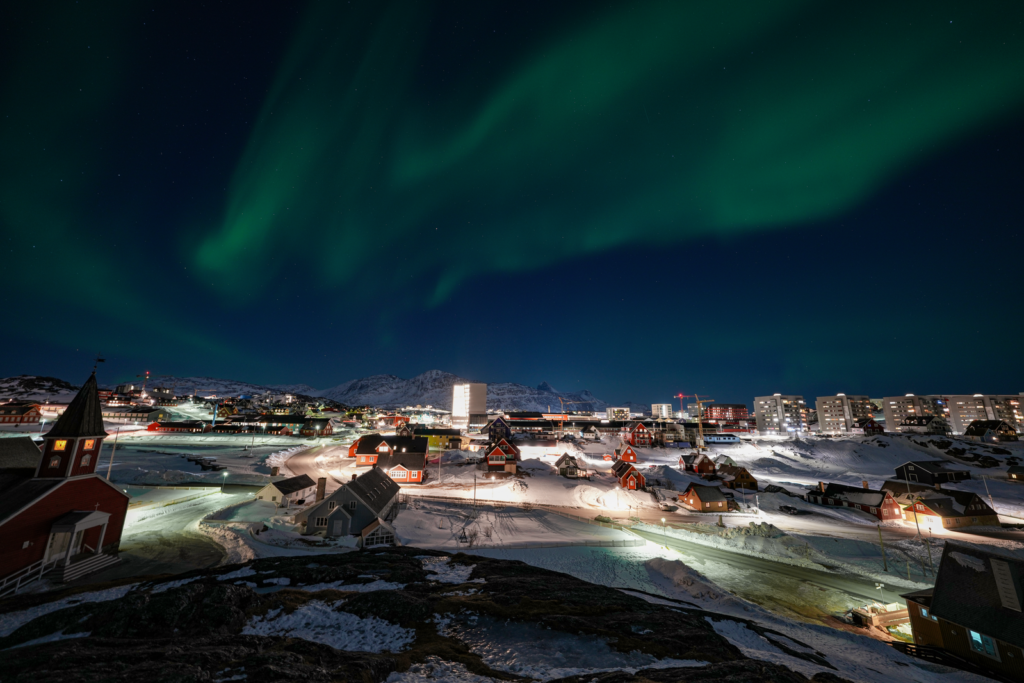In recent developments, President-elect Donald Trump has reignited his interest in securing U.S. ownership and control of Greenland, describing it as an “absolute necessity” for national security and global freedom. This renewed ambition comes alongside his announcement of Ken Howery, a co-founder of PayPal, as his selection for the U.S. ambassador to Denmark. In a statement shared on Truth Social, Trump praised Howery as a renowned entrepreneur and public servant, boasting about his past efforts to bolster U.S. relations with Sweden. Trump emphasized the perceived strategic importance of Greenland and indicated that Howery’s experience in innovation and technology could enhance American representation abroad.
Trump’s renewed focus on Greenland echoes comments made during his first presidential term, where he openly proposed the idea of purchasing the territory. He contemplated the strategic benefits that such a transaction could yield for the United States. However, this proposition was met with outright rejection from the governments of both Greenland and Denmark, the latter of which governs Greenland as an autonomous territory. Greenland’s officials were particularly adamant, stating, “We’re open for business, not for sale,” signaling their disinterest and emphasizing their autonomy.
This renewed pursuit comes on the heels of Trump’s controversial demand for Panama to return control of the Panama Canal to the United States. He has been vocal about his concerns over the canal’s operations and potential vulnerabilities to Chinese influence, asserting that the U.S. has a vested interest in maintaining control. In a recent statement, Trump warned Panama that failure to comply with his demands could result in the U.S. seizing control of the canal, reiterating the idea that the canal was handed over as a “token of cooperation” and asserting that it was never meant to benefit other nations at America’s expense. These comments have rekindled tensions surrounding U.S.-Panama relations.
Panama’s response to these assertions was swift and decisive, with President José Raúl Mulino reaffirming the country’s sovereignty over the canal. In a video statement, Mulino firmly stated that “every square meter of the Panama Canal and its adjacent zone belongs to Panama” and emphasized that the country’s sovereignty is non-negotiable. He rejected any notion that foreign powers, including the U.S. or China, hold control or influence over the canal, asserting Panama’s right to operate independently. This escalating rhetoric has further complicated diplomatic relations, highlighting the tensions between U.S. interests and Panama’s assertions of autonomy.
In Trump’s continuing foreign policy narrative, the juxtaposition of his ambitions for both Greenland and the Panama Canal illustrates a broader strategy of asserting U.S. interests abroad, even in contexts of existing sovereignty. The insistence on reclaiming control over territories considered strategically vital reflects a nationalistic approach that prioritizes U.S. dominance in international affairs. Such sentiments resonate with Trump’s political base, who may view this as a reaffirmation of American strength and leadership, yet it raises significant diplomatic concerns and repercussions for the U.S. standing globally.
As these discussions unfold, the implications for U.S. foreign policy and Caribbean relations remain to be seen. Trump’s vision, driven by economic aspirations and national security considerations, could reshape the geopolitical landscape, inciting further resistance from nations asserting their autonomy. The global community’s response to Trump’s bold declarations will be crucial in shaping the future of U.S. engagements with both Greenland and Panama, as well as in determining the feasibility of his ambitious territorial aspirations in a world increasingly focused on respect for national sovereignty.

